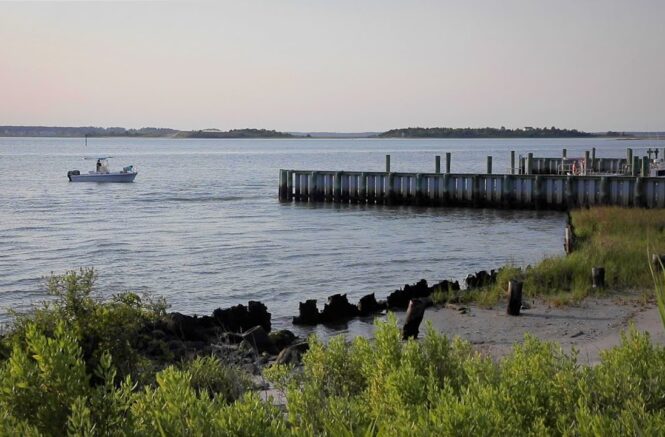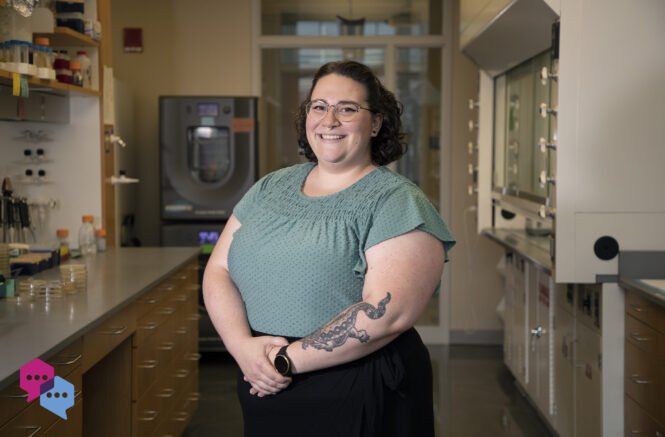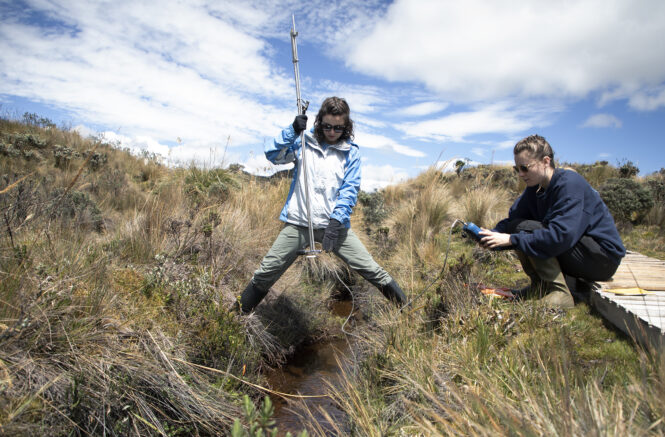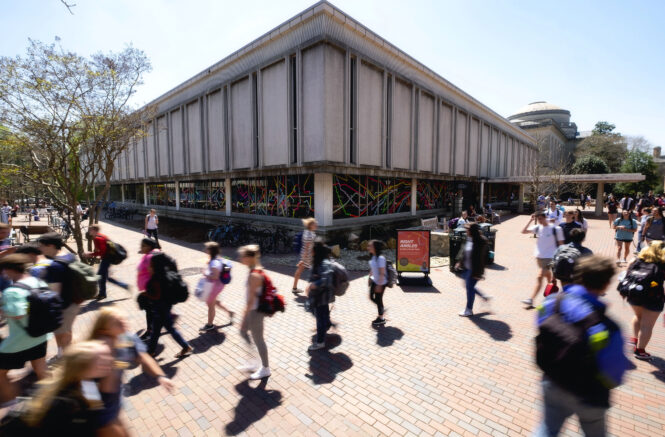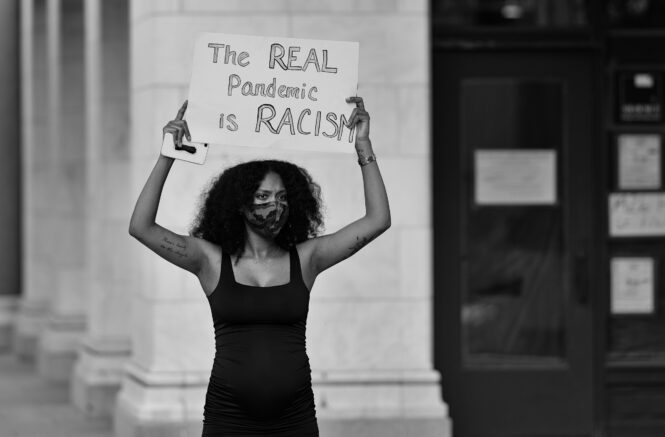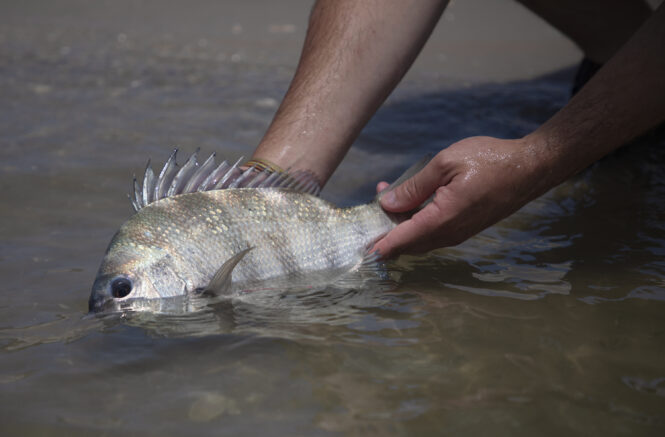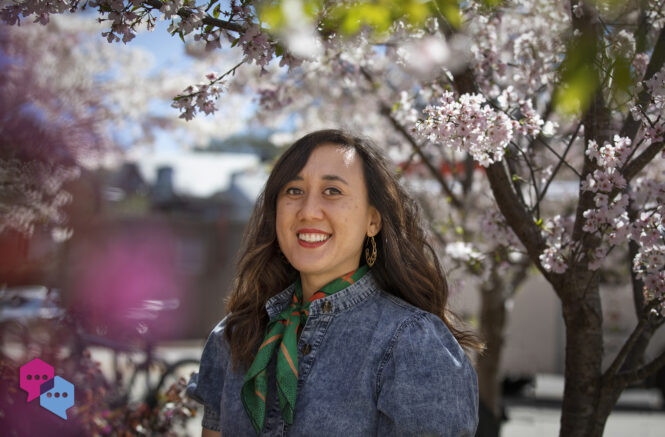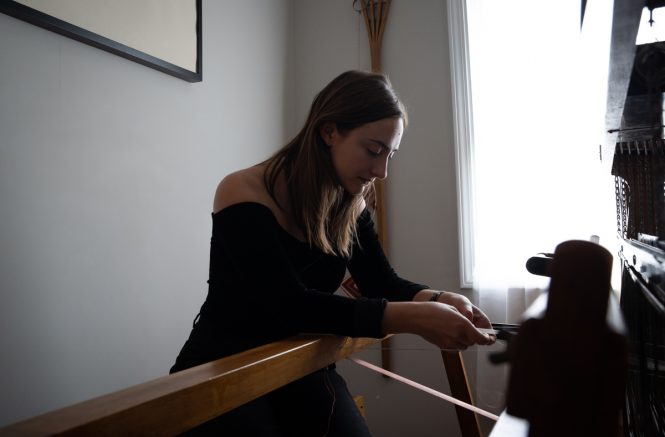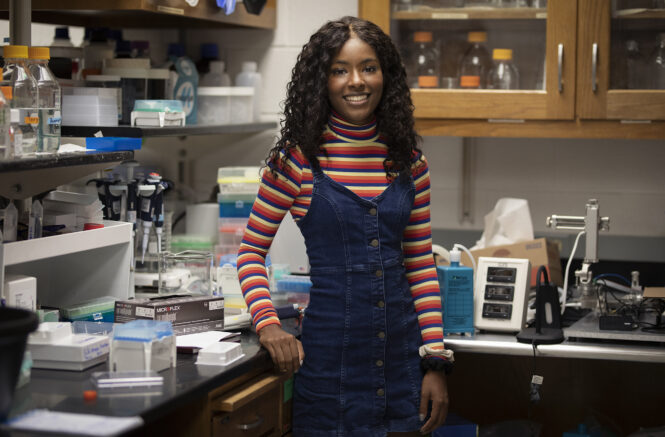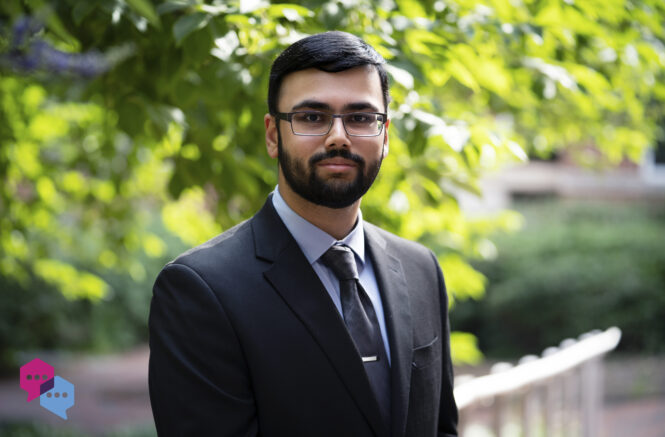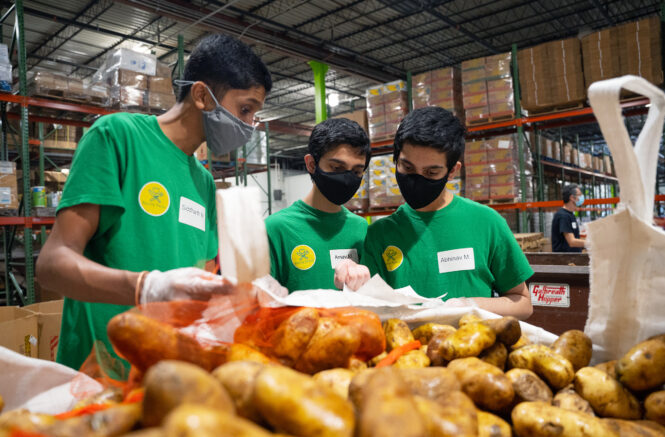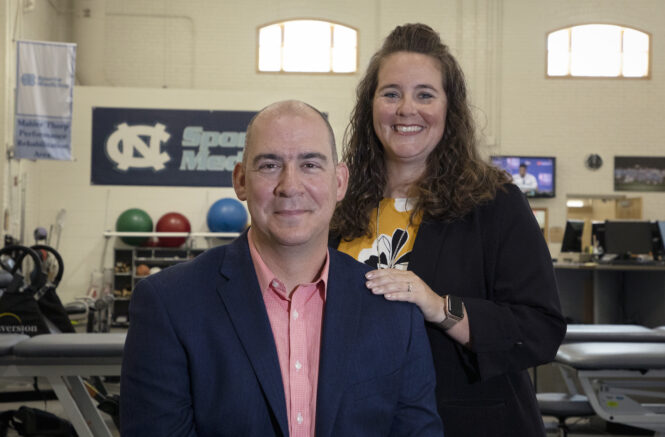In Hot Water
Warming ocean waters are one of many climate change consequences, and scientists have observed fish migrating to stay within their preferred temperature range. Janet Nye, a UNC-Chapel Hill marine scientist, wants to understand how a warmer environment will affect these animals to help fisheries better prepare for the future.
Stephanie Smith
Stephanie Smith is a PhD student in the Department of Earth, Marine, and Environmental Sciences within the UNC College of Arts & Sciences. By observing squid, she researches how bacteria acquire and exchange DNA from other bacterial cells — a process called horizontal gene transfer — to improve our understanding of bacterial evolution.
Perseverance in the Páramo
This summer, UNC-Chapel Hill research technicians Liz Farquhar and Tessa Davis traveled to the Andes Mountains in Ecuador for a project in the páramo, a beautiful but challenging ecosystem. While the high altitude and unpredictable weather took time to adjust to, they discovered that the resilience they gained during the pandemic aided them in all the obstacles they faced.
The Time Tracker
The pace of life varies often. Sometimes it drags, others it races. But if time always moves at the same rate, why does it feel different? That’s a question UNC-Chapel Hill philosopher Carla Merino-Rajme strives to answer.
Taking On Discrimination
Julian Rucker wants to motivate people to address the stark racial disparities that have characterized the history of the United States. As a UNC-Chapel Hill postdoctoral researcher, he uses social psychology to unpack why structural racism exists, how people perceive it, and why we must change policies to eliminate it from our society.
Searching for Sheepshead
Commercial and recreational fishing are important contributors to the North Carolina economy, but there are still lots of unknowns about many fish species. UNC–Chapel Hill PhD student Lewis Naisbett-Jones is trying to unravel some of that mystery by tracking the migration of one popular species in the fishing community: sheepshead.
Maggie Melo
Maggie Melo is an assistant professor within the UNC School of Information and Library Science. She studies how design and spatial interventions can be integrated into makerspaces and other environments to foster the inclusion of diverse user communities.
A Respectable Use of Time
How do official records of the American past differ from those documented by the everyday women who lived through it? Danielle Burke, a master’s student in the UNC-Chapel Hill Department of American Studies, is combining studio art with archival and ethnographic research to explore class, gender, and identity through an overlooked sector of craftspeople: handweavers and lacemakers.
Finding Her Field
UNC–Chapel Hill prides itself on the abundance of opportunities available to undergraduate researchers. Even so, it can be daunting for students to make that first step into hands-on research. Autumn Tucker, a senior majoring in neuroscience, talks about working in the Leon Coleman Lab and how that has shaped her education and growth as a researcher.
Nihar Vaidya
Nihar Vaidya is a junior double-majoring in computer science and statistics and analytics within the UNC College of Arts & Sciences. He is also a Chancellor's Science Scholar. He uses computational neural networks to analyze brain patterns found in MRI data sets to predict when patients may encounter seizures caused by epilepsy.
A High-Tech Solution to Hunger
With a passion for technology, a drive to make a real-world impact in their community, and some help from UNC-Chapel Hill researchers, three local high school students created Pantry Patrol, a user-friendly application designed to help food pantries better combat hunger.
Divide and Conquer
Jason Mihalik and Johna Register-Mihalik — both exercise and sport science professors — have spent the past 17 years beautifully navigating the personal-professional divide at UNC-Chapel Hill. Not only did they meet and get married at Carolina, but they’ve since gained tenure and now oversee innovative and complementary research programs within the field of sports-related concussion.



